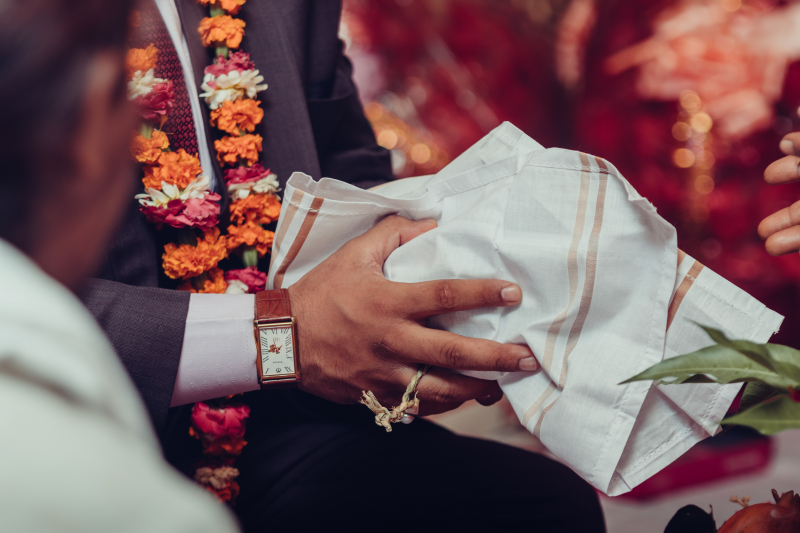The exchange of gamusas between the bride and groom is an essential part of the wedding ceremony
The exchange of gamusas, those revered traditional Assamese towels, emerges as a poignant and deeply meaningful tradition within the intricate mosaic of Assamese wedding ceremonies. As the bride and groom exchange these meticulously woven and intricately adorned towels, they are partaking in a ritual that goes beyond the physical exchange, embodying the emotional exchange of vows, commitments, and the promise of a shared future.
The gamusa, a symbol of purity and respect in Assamese culture, carries with it the weight of tradition, the rich heritage of the land, and the values that the couple will carry with them into their married life. With each fold and exchange, the gamusas become more than just pieces of fabric; they transform into emblems of unity, love, and mutual understanding. This act, seemingly simple, symbolizes the profound connection that the bride and groom are forging as they embark on their journey together.
The exchange of gamusas is not just a ritual; it's a thread that weaves together the tapestry of families, traditions, and aspirations. It's a bridge that connects the past with the present and the future, signifying the joining of two families, two lives, and two destinies. The carefully woven threads of the gamusa mirror the weaving of lives, as two individuals come together to create a life that is bound by love, mutual respect, and shared dreams.











